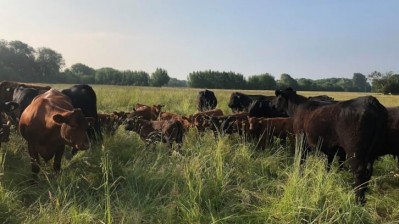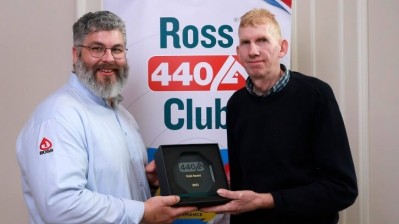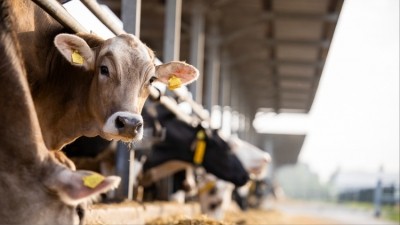News
‘UK’s largest agri-tech centre’ opens as study flags big funding gap

The findings come from a new report which surveyed 200 R&D and technology decision-makers in the agriculture and food sectors.
While 51% of food and agri leaders identified technology implementation as imperative as they look ahead to the next five years, 48% said there were stages in their supply chain where investments and innovation is lacking.
Growth and expansion were also found to be a priority for 58%, followed by becoming more sustainable (40%).
In line with this, 40% of agri-food businesses said they want to explore new technologies relating to sustainable production, 38% food security, and 31% resilient food systems.
Twenty eight percent are keen to explore the potential of AI and machine learning, but just 26% were interested in robotics and automation which has previously been one of the most popular ventures for agri-tech. In 2023, global investment in farm robotics and mechanisation rose 9% year-over-year, reaching $760m.
Regardless of the type of tech, access to funding is proving difficult, with 39% of R&D and technology leaders flagging this as a major barrier. This is followed by a lack of resource and time (38%) and attracting investment (27%).
UK Agri-Tech Centre opens
The research from the Future of Agri-Tech Report has been published to coincide with the opening of a new UK Agri-Tech Centre earlier this month.
The centre is a merger of Agri-EPI, CIEL and CHAP and is said to be the UK’s largest dedicated agri-tech organisation.
The business, which is funded predominantly by Innovate UK, aims to strengthen and build connections between science, business and funders to accelerate R&D, and connect businesses to funding, expertise, facilities and collaborators to accelerate progress within the agri-systems supply chain.
Commenting on the merge, Dr. Peter Quinn, chair of the UK Agri-Tech Centre board, said: “One of the major benefits of the new UK Agri-Tech Centre is that we have some of the best people from across the sectors working here and in our networks. Our specialists can use their expertise.
“Within ten to 15 years we will have to change our food production and supply chains significantly. The hardest bit is implementing commercial innovation, which can often take five to ten years. It takes endurance and resilience to trial biological work, to work with nature and the seasons which vary from one to the next. We have to focus on the prize. Becoming the UK Agri-Tech Centre increases the scope and speed at which we can work.”
The centre’s CEO, Phil Bicknell, agreed, adding that its launch comes a “pivotal time”.
He added: “Agri-food is the bedrock of the UK’s largest manufacturing sector. A sector that is facing ongoing challenges around volatility, policy upheaval, input costs and environmental sustainability.
He continued: “Through focusing on key strategic themes of innovation for resilient systems, sustainable production, one health and intelligent agriculture, and by taking a systems-wide approach and creating greater cross-sector working opportunities and collaboration, we believe that agri-tech can ultimately secure the UK’s supply of food, fuel and fibres and stimulate economic growth.”
In other news, Mosa Meat has raised €40m to scale its lab grown meat capabilities.
















